300th anniversary of History at the University of Edinburgh
This academic year, 2019/20, the School of History, Classics and Archaeology is delighted to be celebrating the 300th anniversary of History at the University of Edinburgh.
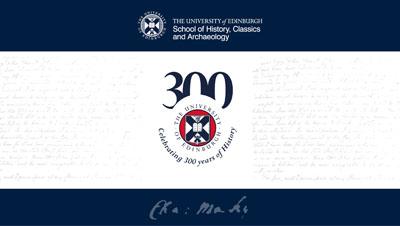
In 1719 Charles Mackie was appointed the first Professor of Universal History at the University of Edinburgh. This was the first such Chair in Scotland, History usually taught as Ecclesiastical History previously. By contrast, Mackie taught a type of ‘world history’ courses and both his courses as well as his research interests were far broader than most historians’ today.
A true polyhistor, Mackie would have felt at home in the modern School of History, Classics and Archaeology and it is fitting that we celebrate his appointment in the School.
Marking the occasion
The Chancellor, Her Royal Highness The Princess Royal visited the University to launch the celebrations on Tuesday 22nd October at the Playfair Library in the presence of staff, students and alumni. The occasion celebrated the achievements of History, Classics and Archaeology and how the disciplines are taught and regarded today.
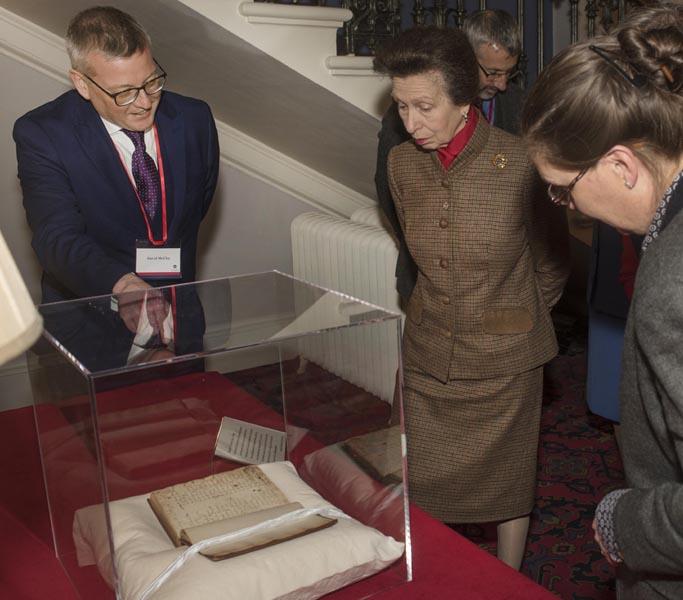 `
` 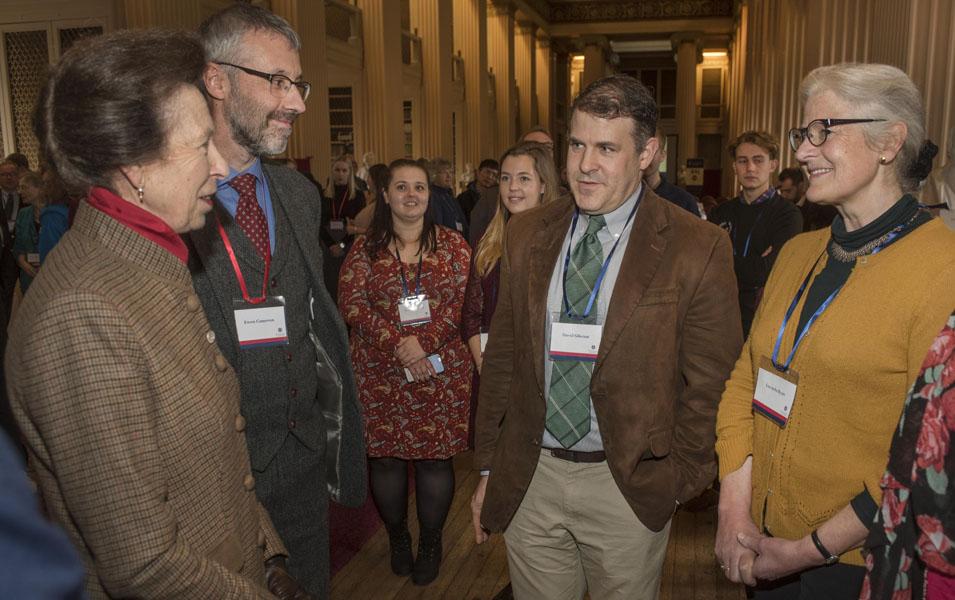 `
` 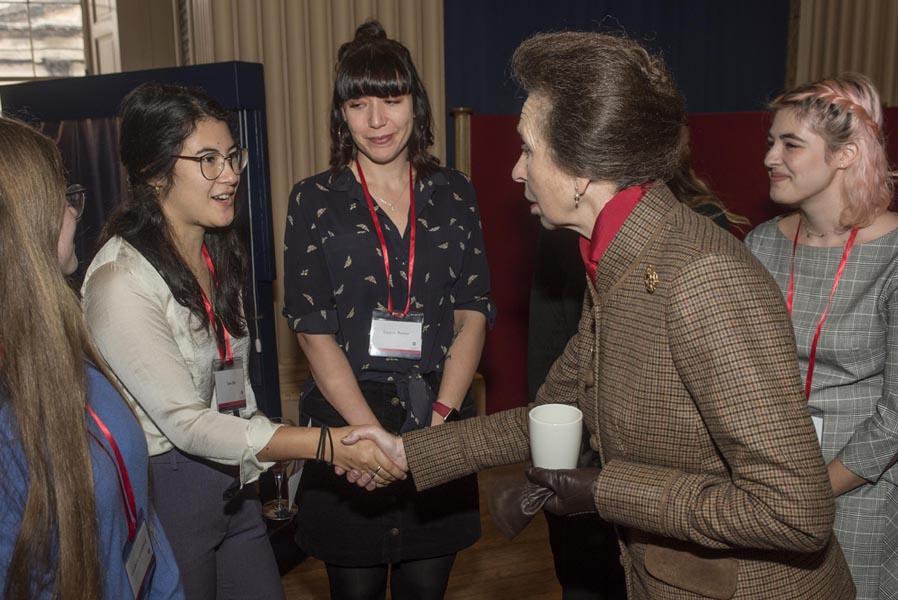 `
` 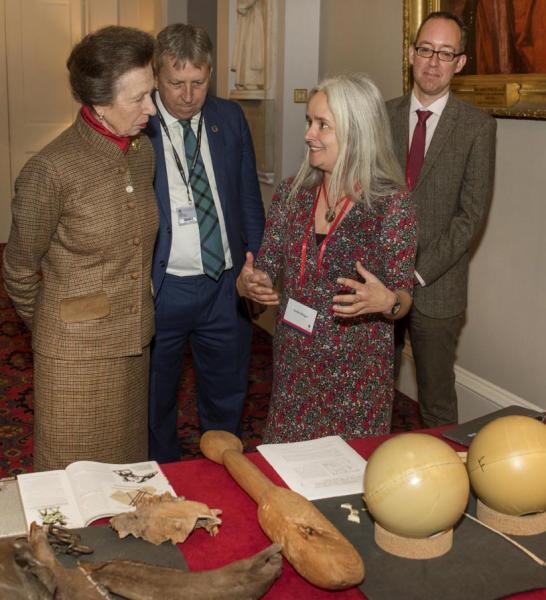 `
` 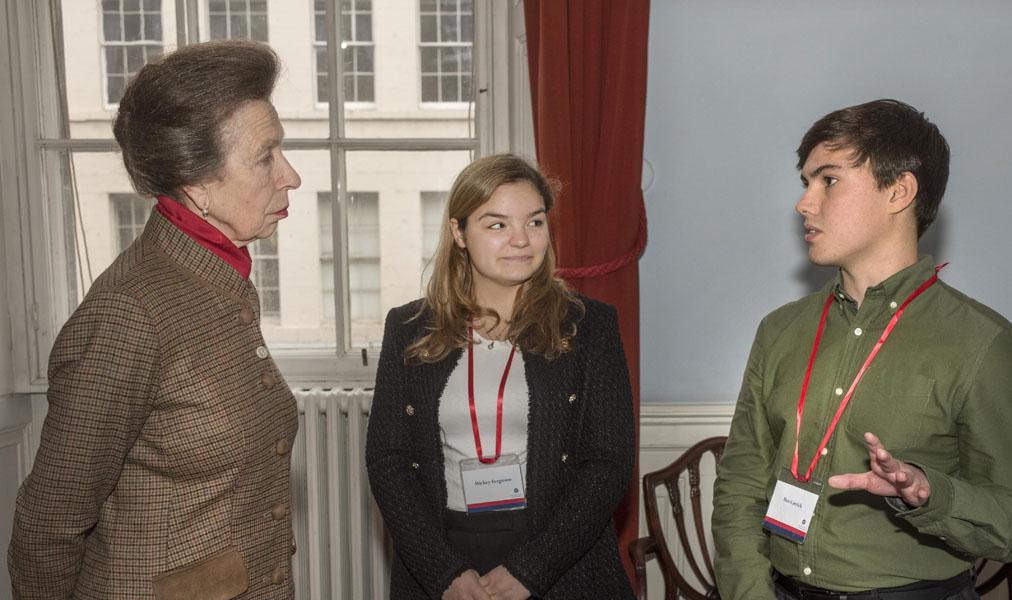 `
` 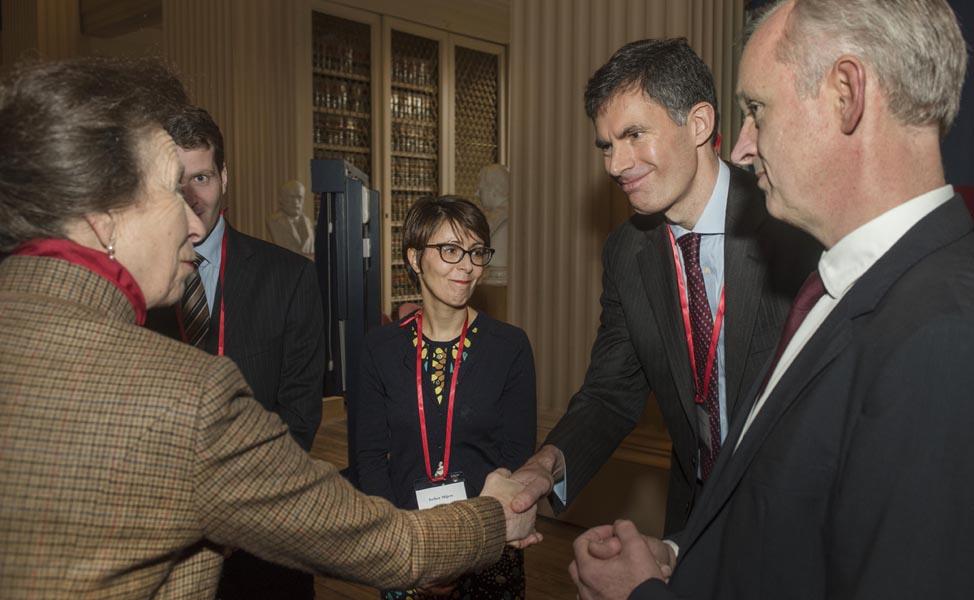 `
` 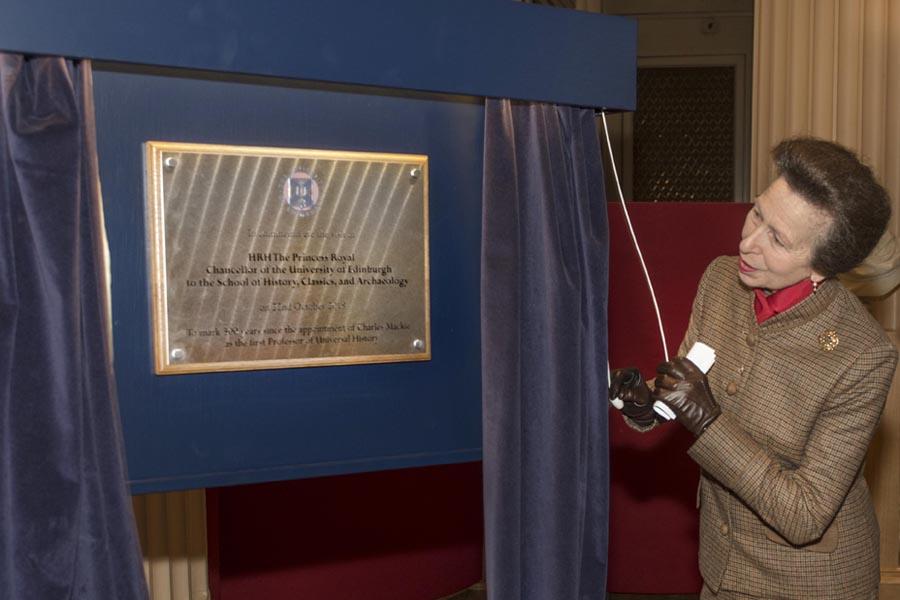 `
` 






Lasting legacy
People are at the heart of history. We are delighted to celebrate this significant anniversary and the input of the students, staff, alumni and partners who’ve played a part in our activities over the years. With its strong local and international connections, teaching and research record, History, Classics and Archaeology at Edinburgh have all the ingredients to build on their achievements of the last three hundred years.
The School of History, Classics and Archaeology will be marking the 300th anniversary of Mackie’s appointment throughout the academic year. Already, in 2019 a number of initiatives have taken place.
- A programme of events ran in New York City in November to reflect on History’s achievements and consider what the future holds for the field. The events showcased the University’s academic excellence in History and sought to encourage new global partnerships.
- Retrospect - a student-led undergraduate journal at the School of History, Classics and Archaeology is producing a commemorative issue on the topic of ‘Celebrations and Commemorations’ which will be published and launched in January.
- The School's fund supporting internal undergraduate student initiatives has been themed around activities which celebrate the 300 year anniversary and will be known as the Charles Mackie Student Initiative Fund.
- A panel event convened by Professor Ewen Cameron discussed the work of Charles Mackie, with current lecturers from the University.
Who was Charles Mackie?
I came across Charles Mackie when I was doing my PhD on Scottish students in the Netherlands in the late seventeenth and early eighteenth centuries. Mackie was one of the few who had left not just letters but an entire archive, which allowed me to trace his life as a student, as a tutor to another Scottish student in the Netherlands, and then as a university lecturer. The more I looked into him, the more interested I became. He was not only related to one of the most important principals of the University, William Carstares (another Dutch-educated Scot) and became the first Professor of History – which itself was a new university subject at the time – but he also had a fascinating series of research interests which can be traced through his extensive correspondence and notebooks, held in the Library of the University of Edinburgh. Although he was not quite an Enlightenment figure, we can see some of the interests of those later scholars in his papers.
Mackie was responsible for teaching law students and for this reason he taught a course ‘on Roman antiquities’, but he also taught European history and was especially interested in the critical examination of historical sources. His paper ‘On the sources of vulgar errors in history’ shows him at his most erudite, and pulls together a vast and eclectic range of evidence including classical authors and poets, medieval scholars and contemporary historians.
His other major interest was in chronology and his archive is filled with tables of dates of the ancient and biblical worlds, His copious notebooks give an insight into the sources he used to establish various chronological schemes, including on archaeological and material artefacts. Among his pupils was William Robertson, the famous Enlightenment historian, after whom our building is named.
No known portrait of Mackie survives, but we know he was born in Limekilns, Fife on 31 March 1688. He was the youngest child of William Mackie (d. 1699), then minister at Portmoak, Kinross-shire, and his wife, Christine Aytoun (d. 1688). Following the death of Christine Mackie's father married Margaret Carstares, sister of William Carstares the Principal of the University of Edinburgh. Following his father's death it may well have been Mackie’s uncle who oversaw his education as he matriculated at the University of Edinburgh in 1702, graduating in 1705 and going on to study at Groeningen from 1707 to 1708 and at Leiden in 1715 and later. On 3 February 1726 Mackie married Ann (d. 1770), daughter of Henry Hamilton, an Edinburgh surgeon. They would have thirteen children, all of whom died in childhood.
Edinburgh town council appointed Mackie the first professor of universal history in the university, at a salary of £50 per annum on 28 August 1719. Initially the appointment was for four years but it was extended permanently in 1722. His duties were extensive, including responsibility for Western history as well as for the history of Scotland, and for Greek, Roman and British antiquities. Mackie taught until 1753 when asked that John Gordon to be appointed his colleague due to Mackie’s state of health. Gordon resigned within a year but was soon replaced by William Wallace allowing Mackie to retire from teaching. In 1765 Wallace became professor of Scots law and Mackie retired completely to be succeeded by John Pringle. In the same year Mackie bequeathed his private collection of 151 historical works by European writers of the 16th to18th centuries to the University providing his former student William Robertson with a solid base on which to build the University Library’s history collections during his term as Principal of the University.
Mackie died in Edinburgh on 11 September 1770, following his wife who had died on 1 January of that year.

